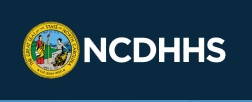
Special to Iredell Free News
RALEIGH — The U.S. public health emergency that was declared to respond to COVID-19 ends Thursday. North Carolina will continue to distribute the federally funded COVID-19 vaccines and tests for free to individuals who are uninsured while supplies last.
“The past three years were a testament to the strength, innovation and resilience of North Carolinians as we worked to protect one another from COVID-19,” said Kody H. Kinsley, secretary of the N.C. Department of Health and Human Services. “COVID-19 is not the threat it used to be because of vaccines, testing and treatment, which remain important tools to reduce severe illness and hospitalization due to COVID-19.”
From early 2020 to April 2023, more than 17 million COVID-19 vaccines were administered in North Carolina through both medical settings and at community events.
With the help of more than 4,450 community partners, as well as health care providers, the state took part in more than 1,000 community events for testing and vaccine administration.
Additionally, more than 12.2 million at-home tests were distributed throughout the state.
“We are so grateful to all of the community partners, public health and health care workers and countless others for their commitment throughout the COVID-19 pandemic-despite the many challenges to ensure North Carolinians had the information, vaccines, tests, treatments and other resources that helped reduce the spread of disease, hospitalizations and COVID-19 related deaths,” said Dr. Elizabeth Cuervo Tilson, state health director and NCDHHS chief medical officer.
The StarMed COVID-19 telemedicine program, promoted in partnership with NCDHHS to expand access to COVID-19 resources through virtual appointments, connected North Carolinians in 92 out of 100 counties with a health care provider and provided more than 3,000 prescriptions for treatment. Based on available clinical trial data, this translates to hundreds of hospitalizations prevented and millions of dollars in hospitalization costs averted.
While the public health emergency has ended, COVID-19 vaccines, testing and treatment will remain free in North Carolina, regardless of insurance or immigration status, while supplies last. When supplies of federally purchased vaccines run out, they will be available like flu shots and other routine vaccinations, covered by Medicare, Medicaid, private insurance or out-of-pocket costs for the uninsured. Visit MySpot.nc.gov to learn more or NCDHHS.gov/LHD to contact your local health department.
At-home COVID-19 tests are still available from many places at no cost and can be mailed directly to a home address. Community-based organizations can order free tests through June 26, 2023, to distribute in their regions. Visit MySpot.nc.gov/tests for more information.
Additionally, federal Test to Treat locations will continue to provide treatment at no cost to those who are uninsured or underinsured, although a fee may be charged for evaluation.
As the public health emergency ends, people’s Medicaid, WIC and Food and Nutrition Services benefits could change. On April 1, North Carolina began the recertification process to check the status of all Medicaid recipients and work to minimize health care coverage gaps for families. Medicaid recertifications will happen on a rolling basis into 2024. The first beneficiaries will see changes July 1.
Medicaid recipients may receive instructions by postal mail, email, phone or text message with information about when and how to renew coverage or recertify benefits. It’s important to update all necessary information related to benefits coverage, respond right away to instructions and submit all required materials on time. Further information is available at Medicaid.ncdhhs.gov.
Metrics have been essential to North Carolina’s response to COVID-19. However, reported case numbers have become increasingly unreliable as more people are using home tests, which are not generally reported to health officials. With the end of the U.S. public health emergency, doctors and labs will no longer be required to report COVID-19 cases to public health in North Carolina. However, North Carolina will continue to track and share COVID-19 data from other sources, including:
♦ Emergency department visits for COVID-like, influenza-like, RSV-like and overall acute respiratory illness;
♦ Hospital admissions for COVID-19 and influenza;
♦ Death certificate data; and
♦ Testing samples of wastewater
As with other public health focuses, concerns and conditions, COVID-19 updates will continue to be provided on an as-needed basis. More than 29 million visitors used the MySpot.nc.gov website to access important and updated information about COVID-19. NCDHHS also reached more than 963 million people through social media and 462,290 people through live, virtual tele-town halls where experts provided essential information and guidance.
NCDHHS will continue to strengthen efforts to provide everyone with access to timely information, eliminate health disparities, support overall health and well-being, and help all North Carolinians have the opportunity for health.
LEARN MORE
For more information about COVID-19 resources following the end of the public health emergency, visit MySpot.nc.gov or call 1-800-CDC-INFO.



